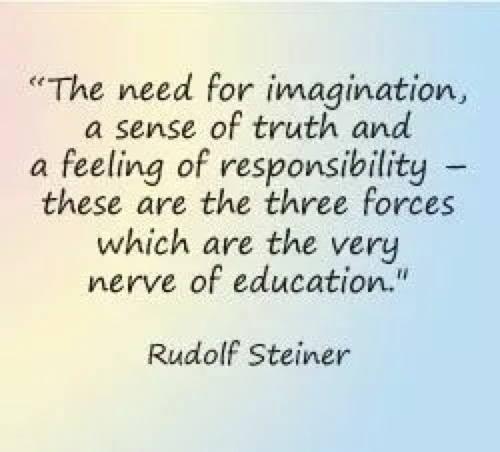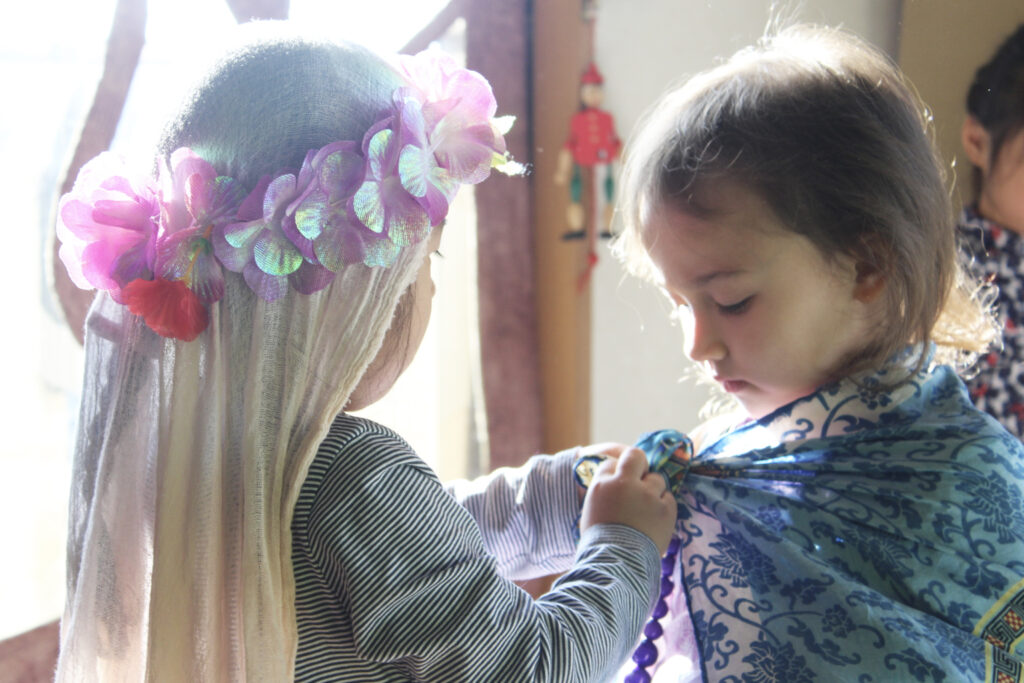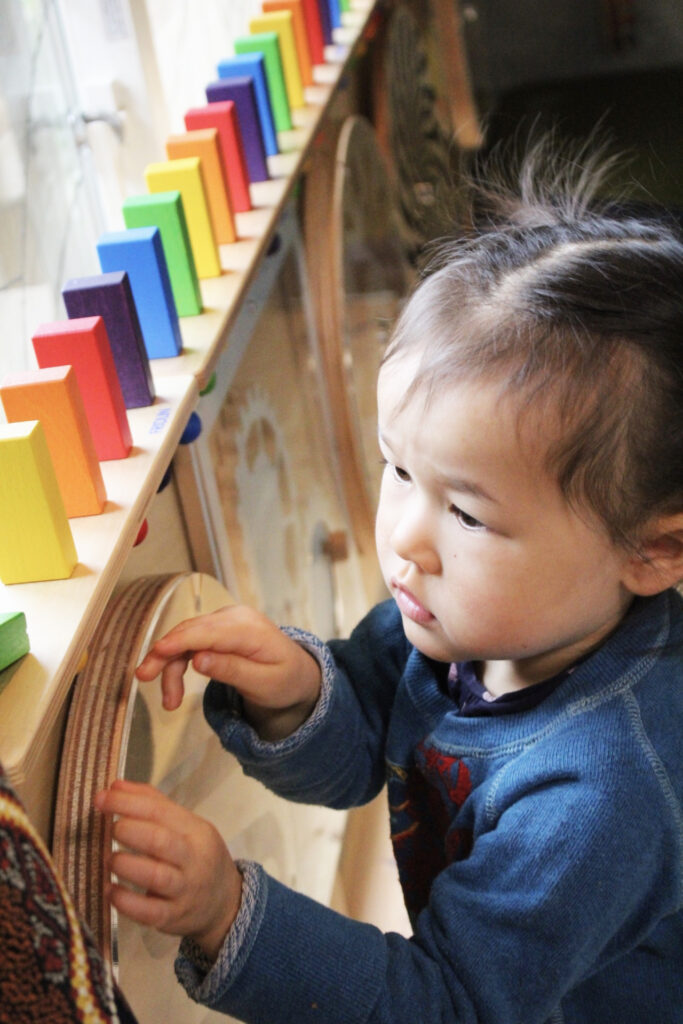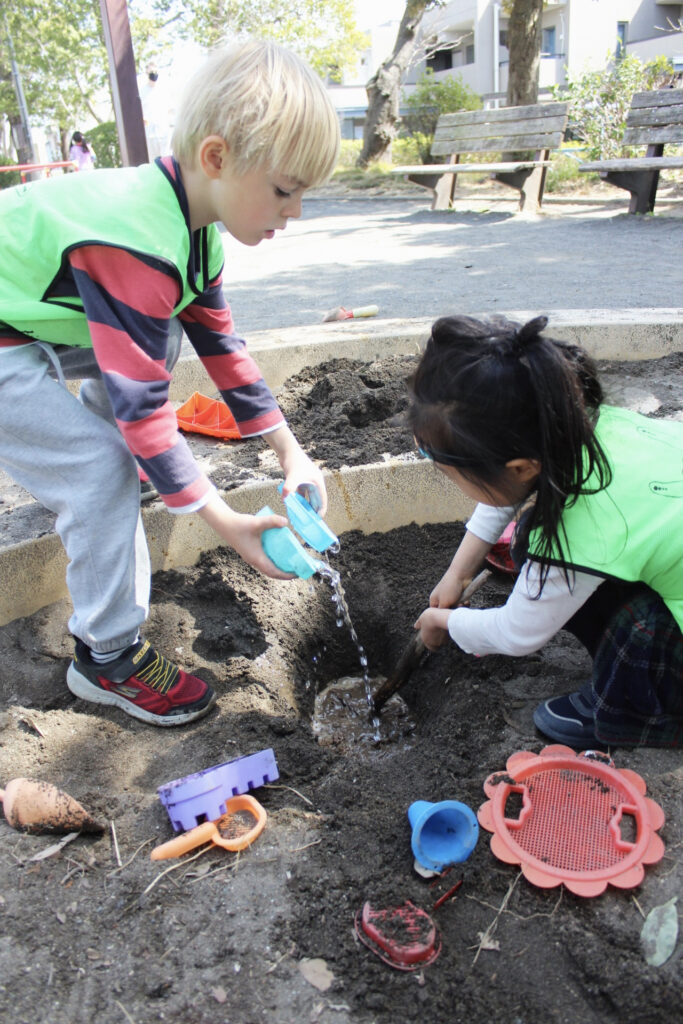What is Waldorf-Steiner Education?

Waldorf-Steiner Education was developed in 1919 by Austrian scientist and philosopher Rudolf Steiner. According to Steiner’s philosophy, education should consist of learning that engages the heart, head, and hands – or feeling, thinking, and doing. This is the basis out of which Waldorf teachers involve and nurture children through the methodology and curriculum that integrates arts, academics, and practical skills.Waldorf education enables children to become their true selves, be equipped to lead a life of their own choosing, contribute positively to society, and be a strong force for good in the world.
The Early Childhood curriculum prepares children for formal learning by first providing time and opportunity to develop socially, emotionally, and physically in a creative, secure, enabling and harmonious environment.The foundation skills in literacy and numeracy are laid through an environment rich in hands-on activity and play – where language and communication are enabled through a rich oral tradition.
The kindergarten day follows a predictable pattern, alternating child-led time with a teacher-led activity. The day includes a period of free play alongside a special activity such as baking, painting, and handicraft. The morning flows with regular repetitive activity, such as Circle Time, which includes songs and rhythmical verses, music and movement.
Other activities include playdough, gardening, painting, drawing, crafts, and the domestic arts such as cooking, baking, cleaning, and care for self and others. The strong tradition of oral storytelling and puppetry are a part of the morning, and usually signal the end of the session.


Very careful consideration is also given to the impact of everything in the kindergarten environment upon all the senses of a young child. There are no “hard corners”, no strong colours, and all the furniture and toys are made of natural materials, as is some of the equipment like beeswax crayons and sheep’s fleece. Every kindergarten has a protected and safe natural outdoor area – where such space is limited, children are taken to a place where they can experience nature. There are many kindergartens who spend all day in the woods or outdoors. The festivals, seasonal and cultural, are celebrated, and often parents and other members of the community are invited to participate in them.
Waldorf Steiner Education:
- Takes account of the needs of the whole child – academic, physical, emotional, and spiritual;
- Develops a love of learning and an enthusiasm for school;
- Sees artistic activity and the development of the imagination as integral to learning;
- Is respected worldwide for its ability to produce very able, well-rounded young people who have a strong sense of self and diverse capacities that enable them to become socially and economically responsible citizens – citizens who are able to cope with the demands of a fast-changing and uncertain world. Steiner graduates are valued in further education and work place for their unjaded interest in the world and their resourcefulness.


